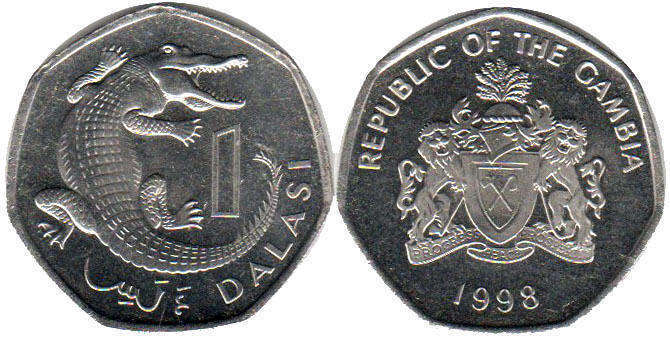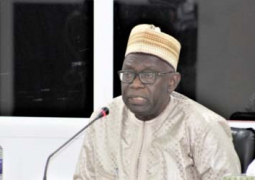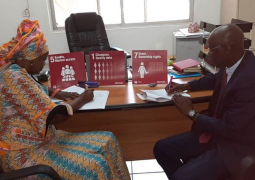
In 1971, coins in denominations of 1, 5, 10, 25 and 50 bututs and 1 dalasi were introduced. The 1 and 5 bututs were minted in bronze while the 10 bututs were brass and the 25, 50 bututs and 1 dalasi were cupro-nickel.
However, as a result of inflation, now the coins have completely disappeared from circulation except 50 bututs that circulates in the market in small amounts. Currently, the minimum monetary unit has become 1 dalasi (D1) and few 50 bututs.
This reporter talked to several people about the current status of dalasi coins in the market. Many have explained how what they called gradual disappearance of the coins affects their daily businesses.
Speaking to The Point exclusively, Alhaie Jallow, a taxi driver at tipper garage, said he finds it very difficult to have coins in the market, adding: “Now to get enough coins is difficult for us and it is very important for all commercial drivers because we need it to refund our passengers.”
The commercial driver said lack of coins is severely affecting him, while justifying that he often has spats with his passengers due to lack of coins to give change.
“We often exchnage coins from beggars but it is not sufficient for us. Therefore, there is a need for the Central Bank to produce more coins in the market,” he opined.
Modou Loum, also a commercial driver, claimed that there is shortage of coins in the market compared with the previous years when coins such as D1 and 50 bututs were rampant in the market.
In 2019 The Central Bank of The Gambia introduced new bank notes in the market without coins. The coins were last produced in 2016.
However, Loum, who spent over 10 years driving commercial vehicles within the Greater Banjul Area said: “Now coins are difficult to get in the market compared with the previous years. Before, I was not struggling to get as now.”
The commercial driver also narrated his experience with passengers in the traffic as a result of insufficient coins. “Some time ago, a passenger forced me to refund him 50 butut. I had to borrow from a colleague to refund him. This is awful.”
He unveiled that some people have to exchange coins with notes from beggars and petty traders. “Commercial drivers would give beggars D10 to get D8 coins. This is a result of insufficient coins,” he said.
Ousman Kandeh, an apprentice for a commercial driver that plies Brufut to Tipper Garage said: “Coins are not many and some passengers will always force me to refund them D2. This usually causes conflict between me and passengers in the traffic.”
He called on the Central Bank of The Gambia to produce more coins in the market.
Alieu Barry, a trader said: “I do not know what happens but now, I find it difficult to get coins.”
He said coins are very important to all business persons, especially petty traders as they used it to their customers change. He added that without coins petty business will not go well.
Amat Jallow, another shopkeeper at Serekunda Market, said the insufficiency of coins has hit his business. According to him, coins like 50 bututs are hard to see in the market affecting many petty traders.
“If I sell someone a cigarette at D1.50, I would find it hard to get 50 butut to refund the customer,” he said.
They all called on CBG to pump more coins into the market to address the challenges of petty business and commercial drivers.



